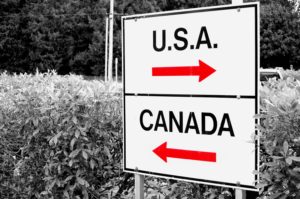
There is speculation that the Trump administration may expand and extend the immigration restrictions implemented on April 22, 2020, to bar entry to H-1B, H-2B, L-1, and J-1 applicants. With all the uncertainty in the U.S. immigration system, many applicants to the U.S. are reconsidering their plans and looking to Canada as a better option.
Speculated U.S. immigration restrictions
In addition to banning entry to most H-1B, H-2B, L-1, and J-1 applicants, there are also concerns that H-4 visa holders will lose their work authorization status. These changes are not just limited to international workers. OPT work authorization for STEM students might also be on the chopping block. Some even suggest that US Citizenship and Immigration Services (USCIS) might raise the application fees of an H-1B visa to USD $20,000 given the fact that the department is quickly running out funds due to a decrease in the collection of application fees.
There is some good news. There is currently no mention of immigration restrictions of NAFTA/USMCA TN visas under the speculated changes so far.
America’s loss is Canada’s gain
Canada and the U.S. often have very different approaches to immigration. Canada largely believes that immigration has positive economic effects and therefore welcomes hundreds of thousands of permanent and temporary residents each year. America also welcomes many hundreds of thousands of newcomers every year, but with rising fears that applicants’ hopes and dreams will be caught in the cultural war crossfire that is American politics, many are considering their immigration options in Canada.
With cheaper fees, easier pathways to permanent residence, and the lack of fear that abrupt politically motivated changes to the immigration system will negatively affect them, Canada stands to benefit a great deal from the uncertainty created by the U.S. immigration system.
A recent example of U.S immigration restrictions benefiting Canada is the decline of Indian students enrolling in U.S. educational institutions and a corresponding increase in Canada. Complaints from students about the U.S. range from restrictive immigration policies to difficulties obtaining green cards that would allow for permanent status. The situation is very different in Canada. Canada has many categories of immigration specifically tailored for international students, primarily the Canadian Experience Class and other equivalent provincial immigration programs.
Canada and the U.S share the largest undefended land border between the two countries. Our economies and cultures are closely linked by the nature of our proximity, but how the two nations deal with immigration is starkly different.




